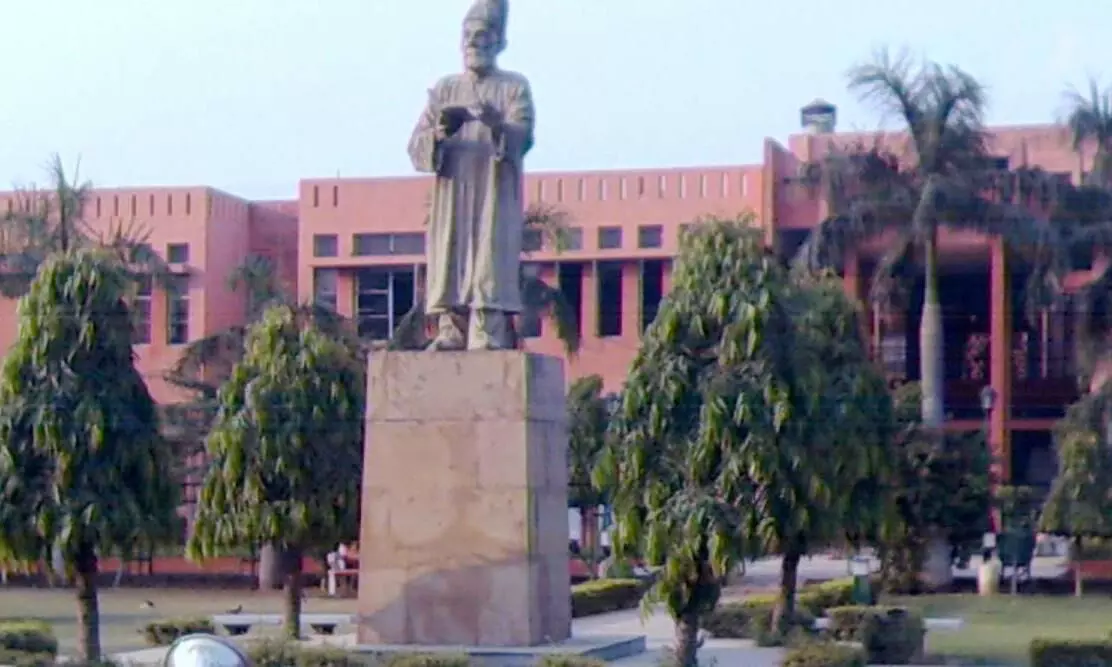
Maududi, Qutub in syllabus aligns with India's secular ethos: Jamia
text_fieldsNew Delhi: After the Aligarh Muslim University (AMU) in Uttar Pradesh dropped the works of two Muslim scholars citing objectionable content, Jamia Milia Islamia (JMI) University said that the courses it provided are designed in line with the secular ethos of India. Jamia said that it teaches fundamentals of all other world religions in its Islamic Studies syllabus, India Tomorrow reported.
Recently, 24 scholars from the AMU had written to Prime Minister Narendra Modi, seeking the removal of works of Syed Abul Ala Maududi and Egyptian scholar Syed Qutub from the syllabus of Islamic Studies and the university decided to take down the mentioned works on Monday.
A source from JMI told India Tomorrow that Islamic Studies is taught there from a historical perspective and in line with the secular temperament of the country. The source said that universities are centres of knowledge where students are taught various ideologies, which is necessary for critical thinking.
The source said that JMI offers no compulsory papers or optional papers by Maulana Maududi or Syed Qutub. Only Deeniyat (Islamic Religious Beliefs) and Tafheemul Quran (Towards Understanding Quran) by Maududi were added for reference in the syllabus. Further, no notification from the Prime Minister or the University Grants Commission has come so far directing them to drop works by the scholars, the source informed.
The source said that Islamic Studies also includes religions like Hinduism, Buddhism, Judaism, Christianity, Jainism, Sikhism, Bahaism, Confucianism, Taoism, and Shintoism, among other world religions. Hinduism covers the concept of God, man and universe, human destiny and liberation, and different sects of Hinduism. The topics under Buddhism include the life of Buddha, basic Buddhist concepts, the four noble truths, the eight-fold path, and the conflux of Buddhism and Hinduism in India, the source said.
Abul Ala al-Maududi (1903-1979) was an Indian Islamic scholar who migrated to Pakistan shortly after the Partition. He founded the Jamaat-e-Islami, a Muslim organisation in India and Pakistan. His leading works include "Tafhim-ul-Quran", a comprehensive interpretation of the Quran. He graduated from the Deoband seminary in 1926 but fell out with it and its political wing, Jamiat Ulema-e-Hind.
Sayyid Qutub (1906-1966), an Egyptian author, was also a leading member of the Muslim Brotherhood in the 1950s and 1960s. He was known for his radical views and was jailed for opposing President Gamal Abdul Nasser of Egypt and eventually executed by the Nasser regime.
Qutub authored over a dozen works, including a commentary on the Quran and "Social Justice in Islam".
























